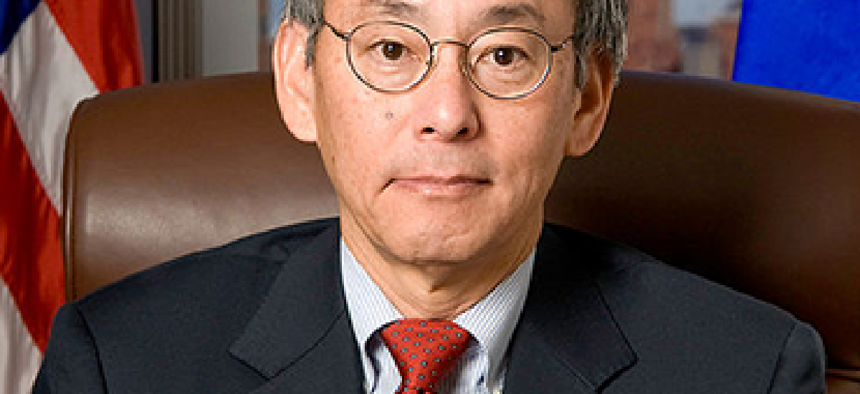Another cabinet official to leave

Energy Secretary Steven Chu plans to step down.

Energy Secretary Steven Chu
Energy Secretary Steven Chu has chosen not to stay on for President Barack Obama's second term. In a Feb. 1 email to Energy Department employees, Chu, who was sworn in as energy secretary in January 2009, acknowledged both the difficulties and rewards his role had brough him.
“While the job has had many challenges, it has been an exciting time for the department, the country and for me personally,” he wrote.
Chu outlined the myriad achievements that had been completed under his leadership, including strengthening partnerships with industry “to give America’s innovators and entrepreneurs a competitive edge in the global marketplace.”
He also mentioned the progress the department has made in increasing the production of renewable energy, fueled partly by the Obama administration investments in developing and implementing the latest technologies.
Some of those investment dollars went into funding Solyndra, which later went bankrupt. Chu’s handling of that $528 million loan was heavily criticized by some members of Congress. Chu addressed that failed initiative in his resignation letter, calling it more an anomaly than the norm.
“Through the Recovery Act, the Department of Energy made grants and loans to more than 1,300 companies,” Chu wrote. “While critics try hard to discredit the program, the truth is that only 1 percent of the companies we funded went bankrupt. That 1 percent has gotten more attention than the 99 percent that have not.”
Chu, a 1997 Nobel Prize-winning physicist, said he would stay on as secretary until the end of February but “may stay beyond that time so that I can leave the department in the hands of the new secretary.”
Chu said he would like to return to academia. He previously taught physics at Stanford University.
“I would like to return to an academic life of teaching and research, but will still work to advance the missions that we have been working on together for the last four years,” he wrote.
NEXT STORY: Hagel faces tough budget questions


